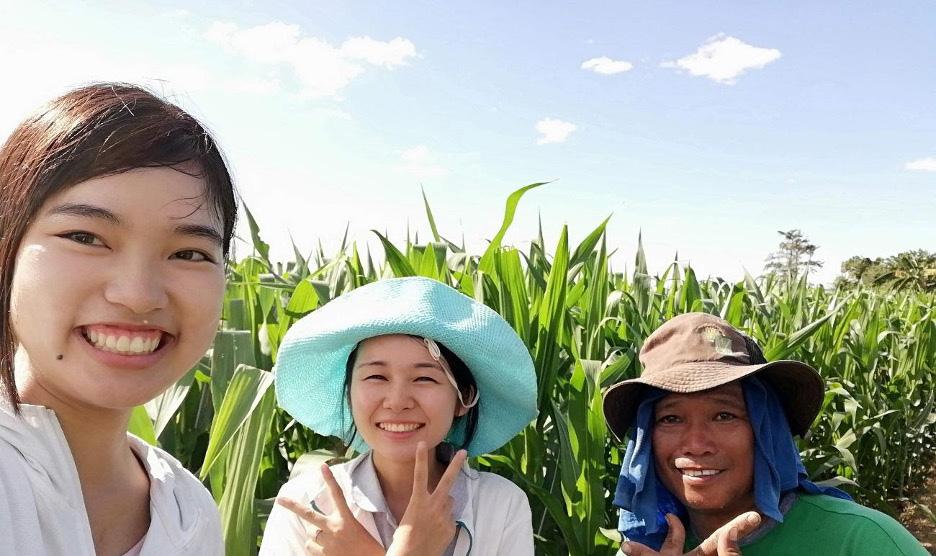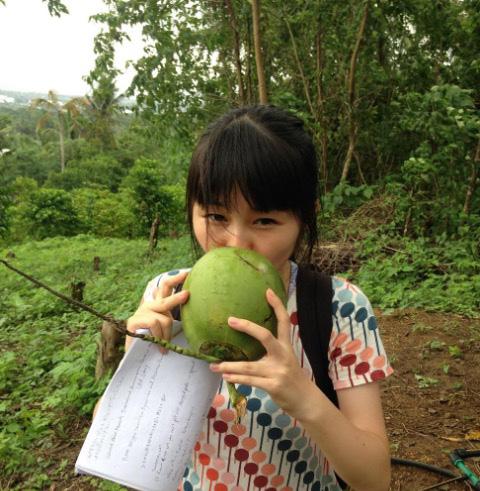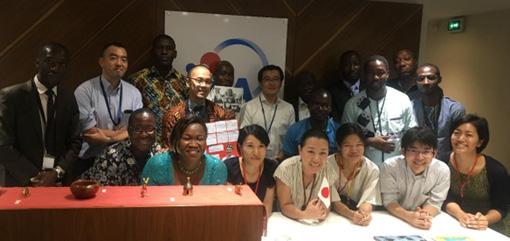
5 minute read
Agriculture Adventure in Philippines


Advertisement
Why I went to the Philippines
My dream is to help farmers in developing countries through agricultural research. To fulfill this dream, I study crop science in UTokyo. However, as an undergraduate student, I had a doubt whether research conducted in universities is actually useful in real-world situations in developing countries. That is why I decided to go to the University of the Philippines and study agricultural extension, which is to deliver new technologies to farmers.

Great encounters during the exchange
During the exchange, I took courses in agricultural extension, rural sociology and so on. I also conducted a small research project in a nearby village. While it was interesting to learn the basics of community development and extension communication in classrooms, it had more influence over my life to have firsthand experiences in farming communities. Both my courses and my research gave me opportunities to meet and interview some farmers. They were nice to me, and I enjoyed the experience very much, but at the same time, I felt the need to enhance my knowl - edge about crops and farming systems to communicate more effectively with them. Towards the end of my stay, I also met some researchers who worked in the area. They were passionate about applying science to the actual farm situations for the benefit of farmers. They communicated well with farmers by showing technologies they developed and getting reactions. I found out that this is the type of research I want to do.
Came back and went again
Fortunately, the former leader of the research team I met in the Philippines returned to UTokyo to teach. After I came back to Japan, I decided to work under him for my undergraduate thesis and pursue graduate study. In my first year of my master’s study, I went back to the Philippines for a collaborative research project with the researchers I met before. I conducted experiments in a farmer’s field and interviewed farmers about their practices. It was very exciting. I knew a little better about crops and farming systems than in my first exchange, so my communication with farmers seemed better. I learned a lot from them and made very good friends with them. However, I experienced a new kind of frustration that I could give nothing in return to the farmers. My research was still in the stage of testing an idea for potential technology. It was far from an actual application. I learned that it was going to be a very long journey before I could achieve anything and be of any help to farmers.
Came home, covid, and still on the way
The initial plan for my graduate study was to stay in the Philippines as long as possible during my PhD, to gain more experience in working with farmers and to develop new technology for them. However, I was forced to change the plan because of COVID. As an alternative, I conducted experiments in a laboratory in Tokyo. By changing experimental conditions, I aim to develop a technology applicable for various environments. Another big change was that I am now on a leave from the university as I gave birth to a son last year.
I am struggling between motherhood and study, but I will try my very best. Upon returning to the university, I plan to refine the technology and test it under farmers’ field conditions by the end of my PhD. Whether it goes well or not, I hope to continue my research journey as a scientist after graduation. Someday I hope to return a favor to my farmer friends by bringing them new farming technologies.



What are the keys to supporting the development of agriculture?
SHUNJI SEGAWA (FS 2016/17, THE UNIVERSITY OF TOKYO)
Agriculture accounts for a large portion of the economy and employment in many developing countries worldwide. Food security has always been a fundamental for a stable economy. Food not only provides the essential resources for us, but also brings joy to our lives and forms a significant part of our culture.
Since April 2017, I have been working at Japan International Cooperation Agency (JICA). JICA is an executing agency of Japanese ODA (Official Development Assistance) and has been active in more than 150 countries. Like many international organisations such as Food and Agriculture Organisation (FAO) and other bilateral organisations, one of JICA’s areas of cooperation is agriculture and aquaculture. My first post in JICA was in the agricultural development department, where I was in charge of agricultural technical cooperation projects in South East Asia, especially Myanmar and Timor-Leste. From August 2019, I worked in JICA
Côte d’Ivoire in Abidjan, where I worked on agriculture and aquaculture projects and administrations such as security and accounting of the office. A recent trend in agricultural development is supporting farmers to become “business persons.” Traditionally, technical cooperation in this sector focused on transferring technologies for cultivation, such as selecting good seeds, preparing the land properly, and applying fertiliser effectively. Although these topics are critical in increasing farming productivity, this is only half the story. The other half is figuring out the value chain after production. Who do we sell our products to, and how do we decide the price? More importantly, how do we select the crops to produce? Supporting farmers to pose and answer these questions themselves is one of the keys to enhancing their motivation.
To address this aspect of “business” in the agricultural sector, JICA has introduced an approach called SHEP, which stands for Smallholder Horticul - ture Empowerment & Promotion. The fundamental concept of the SHEP approach is to support farmers to “grow to sell” instead of “grow and sell.” Since its success in Kenya, where the income of 2,500 farmers has doubled in two years, this approach has been introduced in many of JICA’s projects and projects outside JICA.


Two ongoing projects in Côte d’Ivoire, PRORIL 2 for increasing rice production and PREPICO 2 for increasing the production of inland aquaculture, also introduce the concepts of the SHEP approach. Both projects first look at the rice and cultured fish market, especially in Abidjan, where the demand for these products is the largest. The projects support producers of these products in finding out the information on the demand side, such as the price consumers are willing to pay, how often they would like to buy, which market they access to purchase these items, etc. This information needs to be reflected in the production plan so that the farmers can maximise their profit.

However, this approach of supporting producers to plan their “business” based on the market information is easier said than done. Farmers often do not have direct access to consumer information because they sell their products to mediators who may sell to another wholesaler. Another difficult case may be where the farmer has other businesses that produce profit, and agriculture is only a side business with less urgency for detailed planning or investment. The SHEP approach, therefore, needs to be adjusted to various types of producers so that the project becomes effective in different cases.
Based on my experience working in different countries’ agricultural sectors, motivation and business mindset play a crucial role when supporting the development of agriculture and other primary industries. Once the producers are motivated to invest in their farming activities, the technologies introduced by other countries play a role in increasing productivity. I continue to search for ways in which support from JICA can effectively enhance the development of the agriculture sector in different countries.









